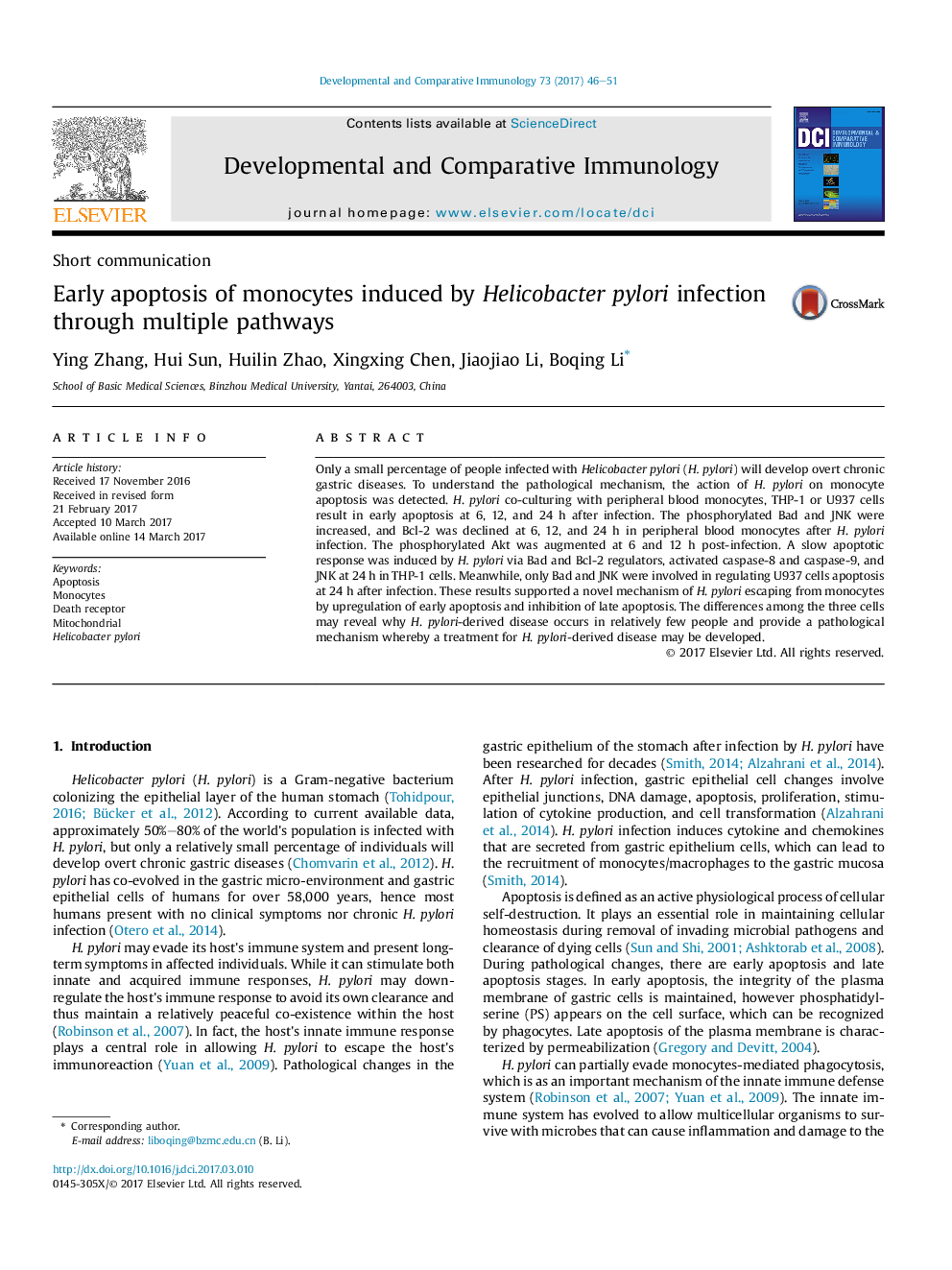| Article ID | Journal | Published Year | Pages | File Type |
|---|---|---|---|---|
| 5539938 | Developmental & Comparative Immunology | 2017 | 6 Pages |
Abstract
Only a small percentage of people infected with Helicobacter pylori (H. pylori) will develop overt chronic gastric diseases. To understand the pathological mechanism, the action of H. pylori on monocyte apoptosis was detected. H. pylori co-culturing with peripheral blood monocytes, THP-1 or U937 cells result in early apoptosis at 6, 12, and 24 h after infection. The phosphorylated Bad and JNK were increased, and Bcl-2 was declined at 6, 12, and 24 h in peripheral blood monocytes after H. pylori infection. The phosphorylated Akt was augmented at 6 and 12 h post-infection. A slow apoptotic response was induced by H. pylori via Bad and Bcl-2 regulators, activated caspase-8 and caspase-9, and JNK at 24 h in THP-1 cells. Meanwhile, only Bad and JNK were involved in regulating U937 cells apoptosis at 24 h after infection. These results supported a novel mechanism of H. pylori escaping from monocytes by upregulation of early apoptosis and inhibition of late apoptosis. The differences among the three cells may reveal why H. pylori-derived disease occurs in relatively few people and provide a pathological mechanism whereby a treatment for H. pylori-derived disease may be developed.
Related Topics
Life Sciences
Biochemistry, Genetics and Molecular Biology
Developmental Biology
Authors
Ying Zhang, Hui Sun, Huilin Zhao, Xingxing Chen, Jiaojiao Li, Boqing Li,
